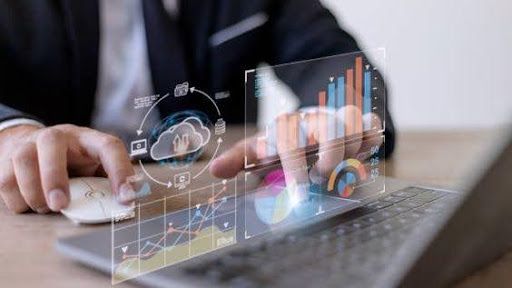Event Data Analytics: Key Strategies for Successful Outcomes
In today's data-driven world, the event industry is no exception.
Event Data Analytics has emerged as a powerful tool for event planners in Sydney and across the globe. By harnessing the vast amount of data generated throughout the event lifecycle, organizers can gain invaluable insights into attendee behavior, engagement levels, and overall event performance. This information can then be used to optimize future events, maximize ROI, and ultimately create a more successful and satisfying experience for attendees.
Understanding Event Data Analytics
What is Event Data Analytics?
Event Data Analytics involves the systematic collection, analysis, and interpretation of data generated before, during, and after an event. This data can come from a variety of sources, including:
- Registration forms: Capture attendee demographics, interests, and preferences.
- Event websites and apps: Track user behavior, session attendance, and booth visits.
- Social media: Analyze event mentions, sentiment, and reach.
- Ticketing systems: Gain insights into ticket sales and attendee demographics.
- Surveys and feedback forms: Gather direct feedback from attendees on their experience.
By analyzing this comprehensive data set, event planners can uncover hidden trends, identify areas for improvement, and measure the effectiveness of their event strategies.
Common Data Metrics Collected at Events
The specific data metrics collected will vary depending on the type and goals of your event. However, some common metrics include:
- Attendee demographics: Age, gender, location, job title, industry.
- Registration numbers: Total registrations, cancellations, ticket types purchased.
- Engagement metrics: Session attendance rates, dwell time in booths, networking activity.
- Satisfaction levels: Feedback survey responses, social media sentiment analysis.
- Marketing campaign performance: Website traffic, lead generation, conversion rates.These metrics provide valuable insights into how attendees are interacting with your event and what aspects resonate most with them.
How to Use Data to Plan Better Events
By leveraging the power of event data analytics, event planners in Sydney, like those working with experienced photo booth companies like
Sydney Photo Booth, can gain a significant advantage. Here are some key ways to utilize data to plan better events:
Analyze Past Events for Future Success
Historical data analysis is a goldmine of valuable information. By examining data from previous events, you can identify what worked well, what didn't, and where there's room for improvement. This knowledge can then be used to refine your event strategy for future iterations.
For example, if data reveals that a particular session had low attendance, you can investigate the reasons behind it and adjust the content or speaker for the next event.
Setting Measurable Objectives for Your Event
SMART goals (Specific, Measurable, Achievable, Relevant, and Time-bound) are essential for any successful event. By setting clear and measurable objectives, you can use data to track your progress and assess whether you're achieving your desired outcomes.
For instance, a measurable objective for a marketing conference could be to increase qualified leads by 20% compared to the previous year. Event data analytics can then be used to track lead generation throughout the event and measure your progress towards this goal.

Optimizing Event Marketing with Data Analytics
Event marketing plays a crucial role in driving attendance and generating interest. Data analytics can be a powerful tool for optimizing your marketing efforts:
Enhancing Attendee Targeting and Segmentation
By analyzing attendee data, you can gain a deeper understanding of your target audience. This allows you to create targeted segments and personalize your marketing messages to resonate better with specific groups.
For example, data might reveal that a significant portion of your attendees are young professionals. You can then tailor your marketing messages to highlight aspects of the event that are most appealing to this demographic.
Measuring and Increasing ROI from Event Marketing
Event marketing ROI (Return on Investment) is a key metric for event planners. By tracking marketing spend and analyzing its effectiveness in driving attendee registrations, you can identify areas for improvement and optimize your marketing budget for future events.
Advanced Data Techniques for Event Managers
Beyond the fundamentals, event data analytics offers a treasure trove of advanced techniques for experienced Sydney event planners:
Leveraging Predictive Analytics in Event Planning
Predictive analytics utilizes historical data and trends to forecast future behavior. This allows for proactive planning and informed resource allocation. For instance, by analyzing past registration patterns, you can predict peak registration periods and adjust staffing levels accordingly. Additionally, predictive analytics can help identify potential attendees who haven't registered yet, enabling targeted marketing campaigns to reach them.
Implementing Real-Time Data Analytics at Events
Modern event technology allows for capturing live data during the event itself. This real-time data provides valuable insights that can be used to make adjustments on-site and enhance the attendee experience in real-time.
For example, you can track session attendance and engagement levels in real-time. If a particular session has low engagement, you can adjust the schedule or offer additional resources to improve the experience for attendees who are already present.
Conclusion
By embracing data-driven strategies and leveraging the power of event data analytics, Sydney event planners can gain a significant edge. From optimizing marketing campaigns to creating a more engaging event experience, data empowers you to make informed decisions and achieve measurable success.
While event data analytics is a powerful tool, it's important to remember the human element. Events are about creating connections and fostering engagement. Consider incorporating a fun and interactive photo booth experience, like those offered by
Sydney Photo Booth, to add a memorable touch to your event.
FAQs about Data-Driven Strategies for Event Success
Q: What is event data analytics?
Event data analytics is the process of collecting, analyzing, and interpreting data generated during events to gain insights into attendee behavior and improve future events.
Q: How can data analytics improve event planning?
Data analytics allows event planners to make data-driven decisions, set measurable goals, optimize marketing campaigns, and ultimately create a more successful event experience.
Q: What are some key metrics to track for event success?
Key metrics to track include attendee demographics, registration numbers, session attendance, engagement rates, and satisfaction levels.
Q: How can event organizers use data to enhance marketing efforts?
By analyzing event data, organizers can refine their target audience, personalize marketing messages, and measure the effectiveness of their marketing campaigns.




